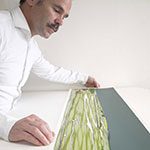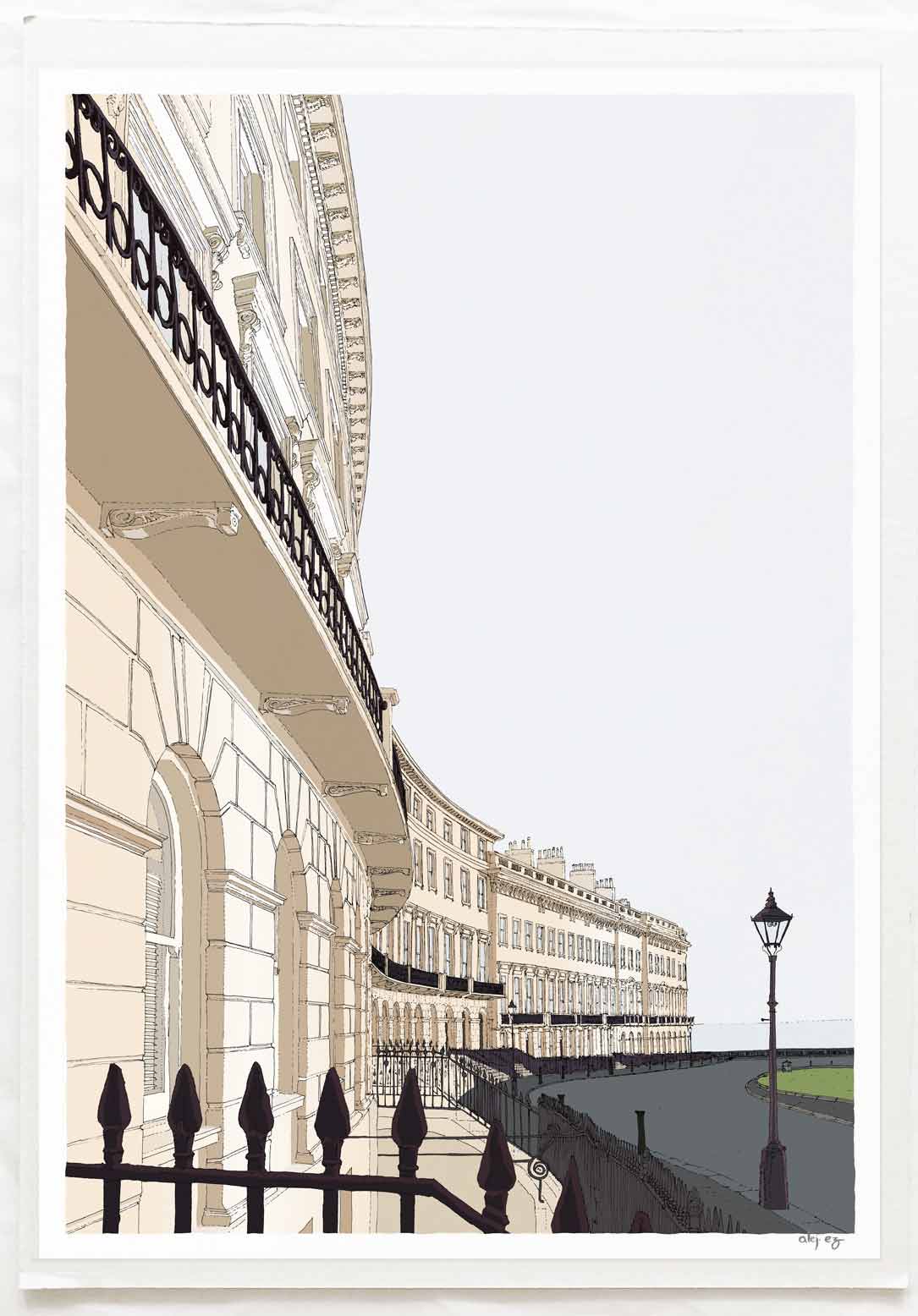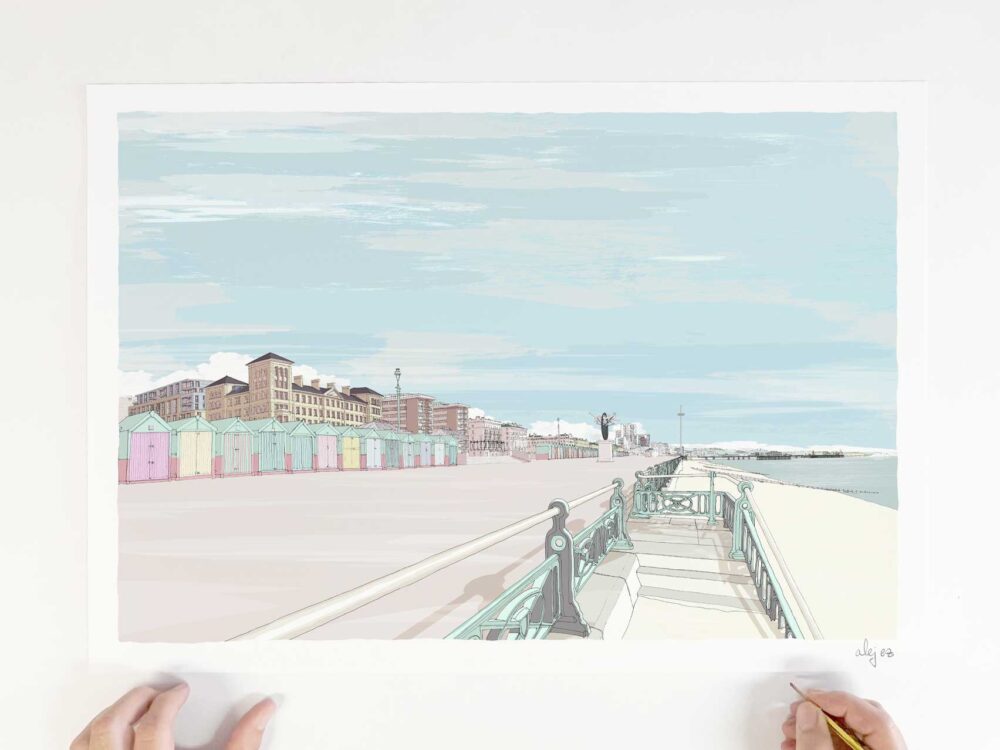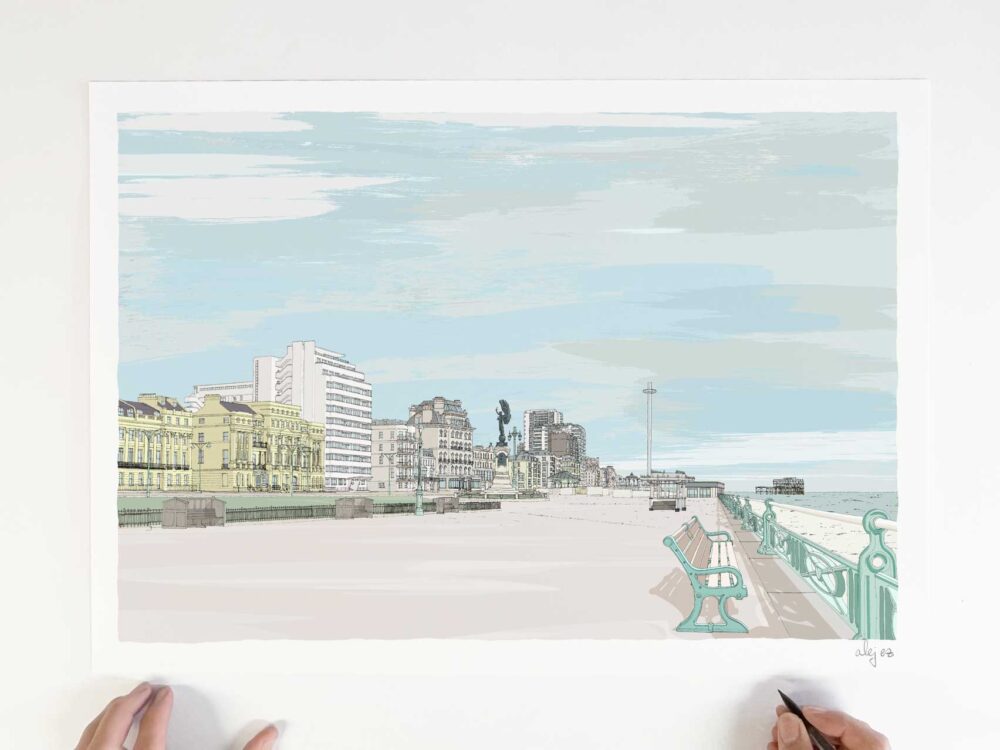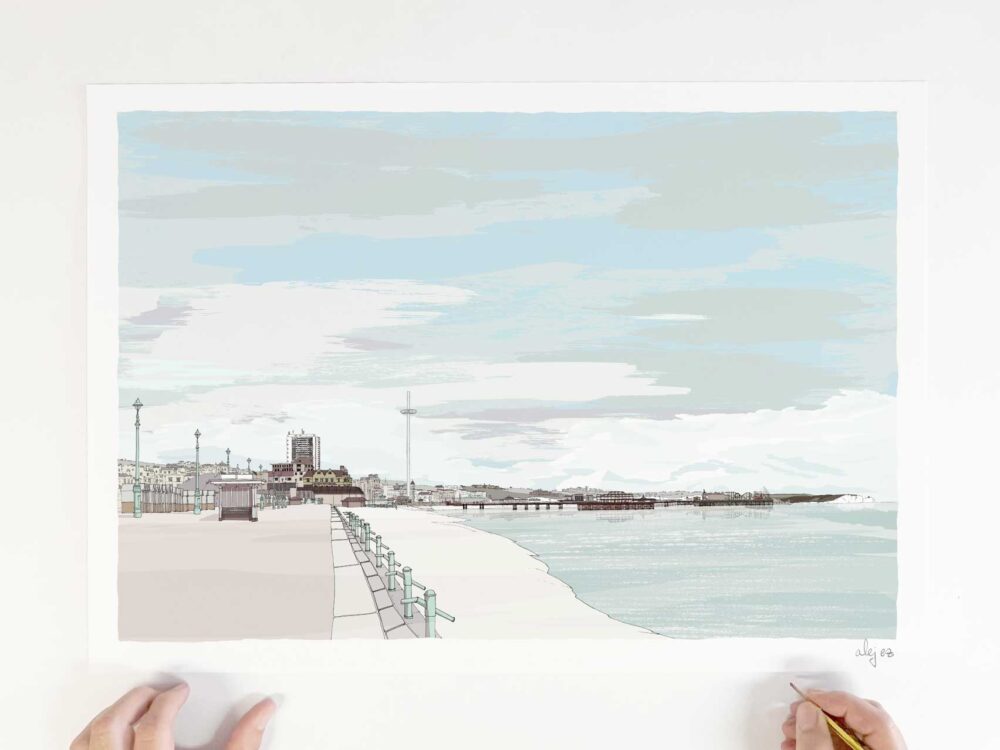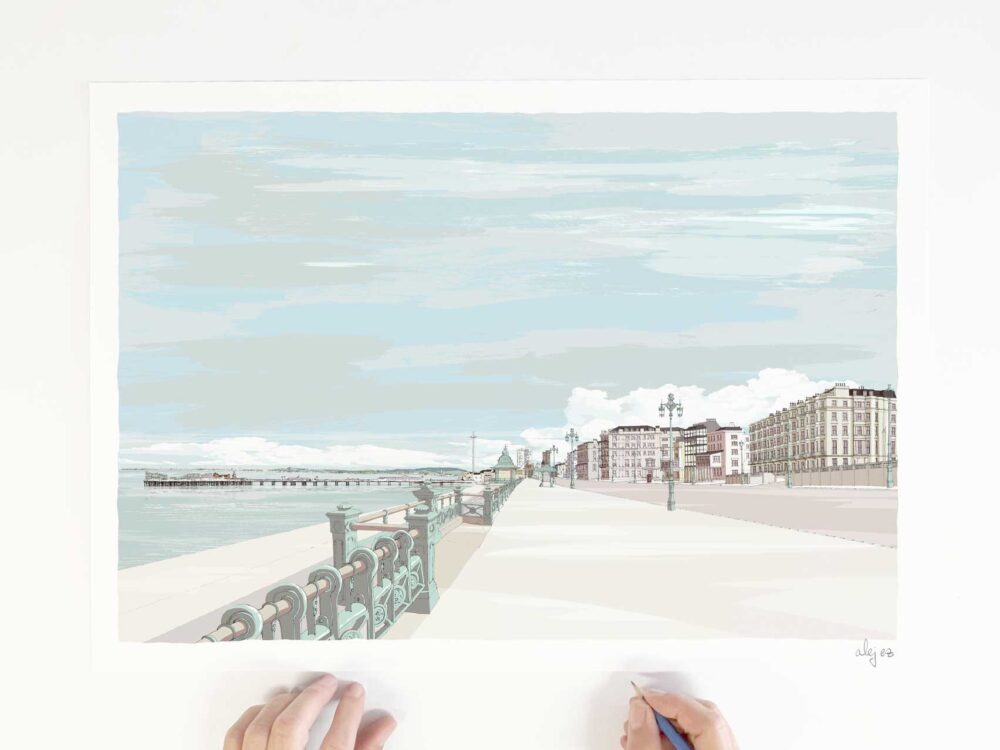Adelaide Crescent Brighton and Hove Amber
Price range: £40.00 through £310.00
Description
Adelaide Crescent Brighton and Hove Amber
Print description
Architectural print of the South-East corner of the magnificent Adelaide crescent in Hove with its enchanting views of the English Channel.
Print details
I created this print from my original ink drawings to which I apply colour digitally. Printed on fine art paper using archival inks. I issue the formats A0, A1 & A2,A3 and A4 as limited editions of 100 where I individually sign and number each print.
History of Adelaide Crescent
A dynamic piece of mid-19th century architecture. This East section as shown in my print has a double curve that visually leads you to the end to meet the Sea. Together with neighbour Palmeira Square forms one of Hove’s most important architectural set-pieces.
Decimus Burton created the designs which works started in 1830. His original design, as exhibited at the Royal Academy, consisted of a half-moon-shaped sea-facing crescent, At that time, immediately to the north what was going to be the largest glass dome in the World was being built, the Anthaeum. Though tragically on its opening day in 1833, the structure spectacularly collapsed. After this disaster the building works at Adelaide crescent stopped.
following the clearance of the Anthaeum debris, around 1854 Another nine houses were built on the east side in a much simpler style, 19 houses were erected facing them to the west, and the shape of the crescent was amended so it opened out at the top and connected both sides with the south ends of Palmeira Square.
Architectural Print
My art print depicts the end East corner, This was the first and finest section of the Crescent to be built.
The façade starts with a typical lower ground level with a front patio and bridges with black painted railings leading to the main entrance doors. The Ground floor is a beautifully rusticated render plinth with a semi-circular window. At first level there are individual bottle baluster balconies with pedimented windows, and a large pediment over the central house on the south. The top of the façade is finished with a gigantic cornice and a continuous solid bottle baluster parapet. This is supported by large projecting corbels, if you look close you can see between these corbels small windows cunningly hidden in between.
This building is representative in Brighton of the transition from Regency to Victorian architecture, from Georgian motifs into Italianate style, with Neo-Renaissance or Neo-Neo-Palladian overtones.
Architectural historian Nikolaus Pevsner claimed that the crescent as a whole was “of little architectural merit, though of architectural interest” because of how it demonstrated Brighton and Hove’s stylistic evolution in the 19th century, he also stated that the heavy bracketing of the eaves on this section “shows at once that we are on the way to the Victorian age
Sources:Wikipedia and The Friends of Palmeira and Adelaide
You might also like
-

Ii360 Palace Pier Bandstand and West Pier Sky Blue
£192.00 add to basket -

Brighton Seafront and Palace Pier from Marine Parade Sky Blue
Price range: £40.00 through £180.00 Select options This product has multiple variants. The options may be chosen on the product page -
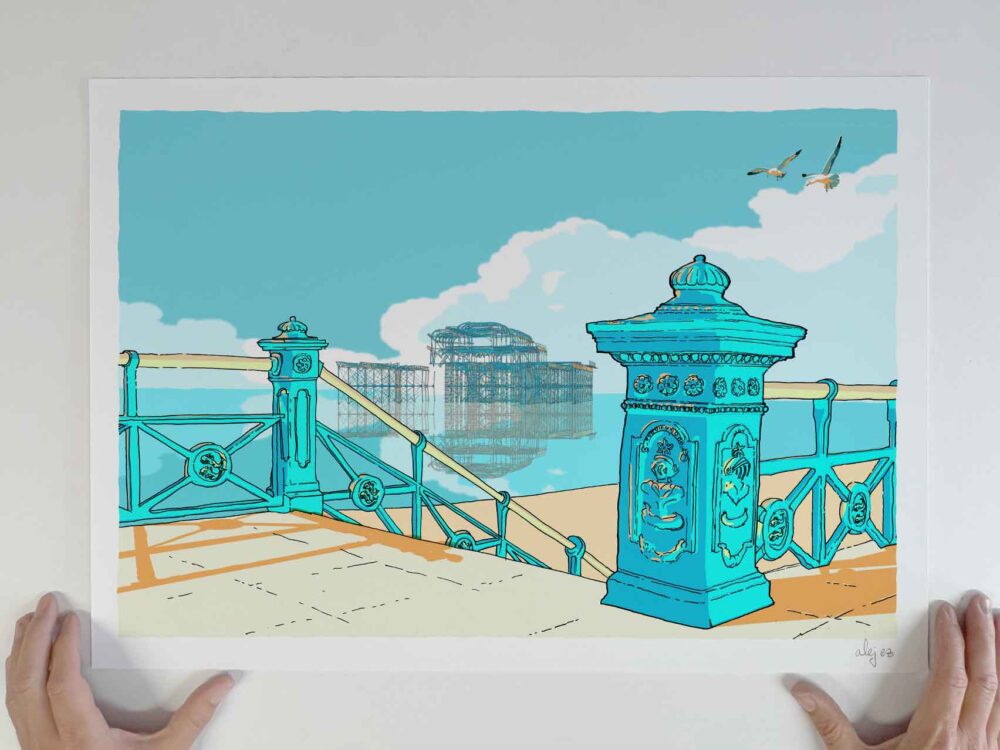
Brighton Seafront Steps Down to West Pier Sky Blue
Price range: £40.00 through £180.00 Select options This product has multiple variants. The options may be chosen on the product page -
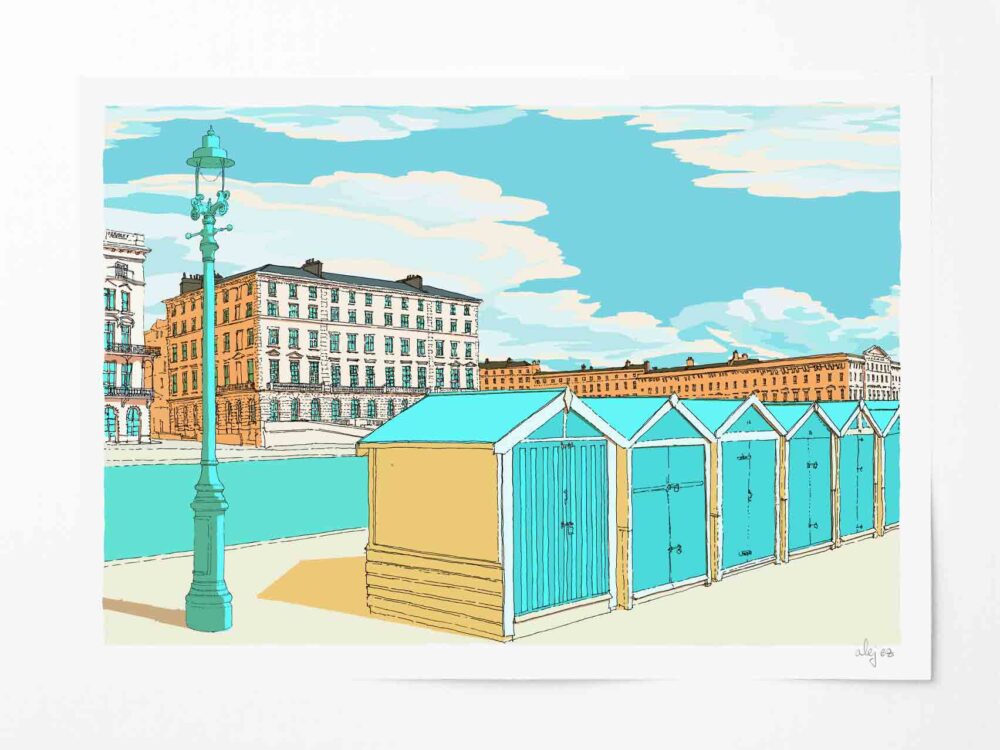
Beach Huts Brighton and Hove City Sky Blue
Price range: £40.00 through £180.00 Select options This product has multiple variants. The options may be chosen on the product page -
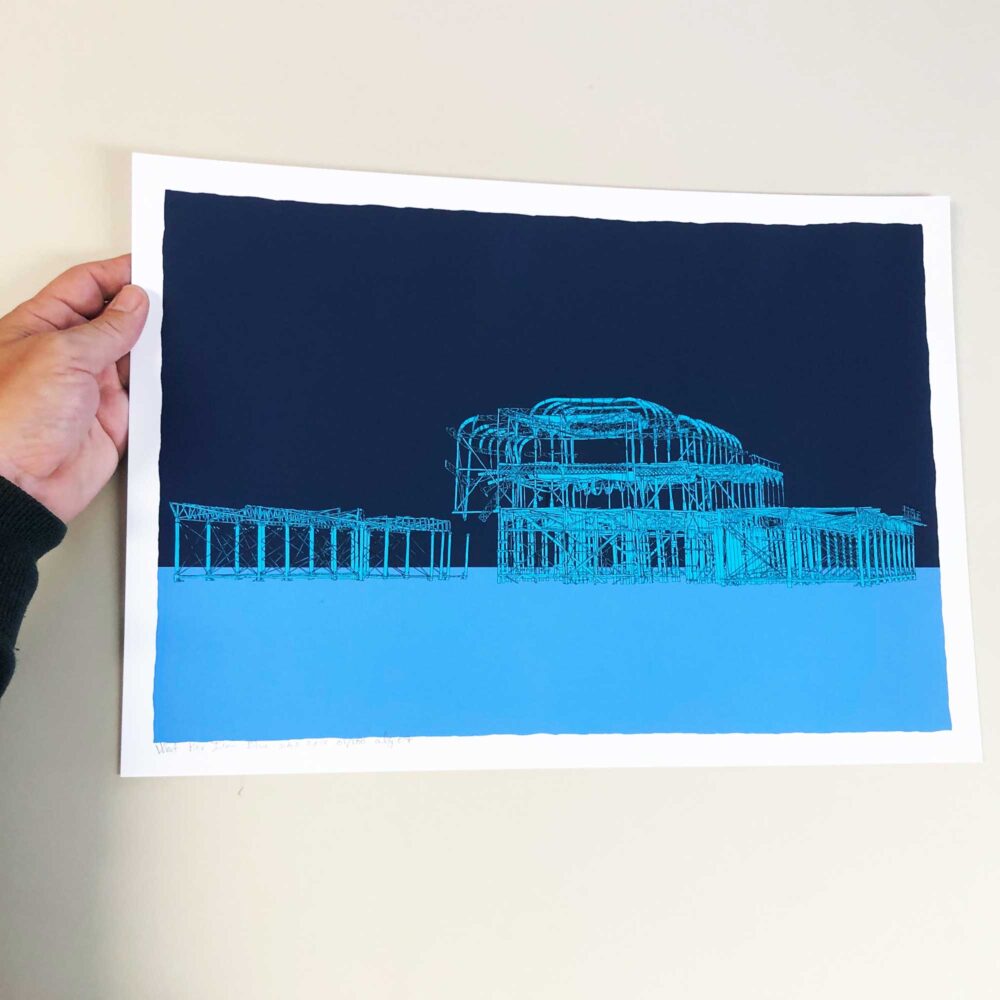
West Pier Icon Blue
Price range: £40.00 through £310.00 Select options This product has multiple variants. The options may be chosen on the product page -
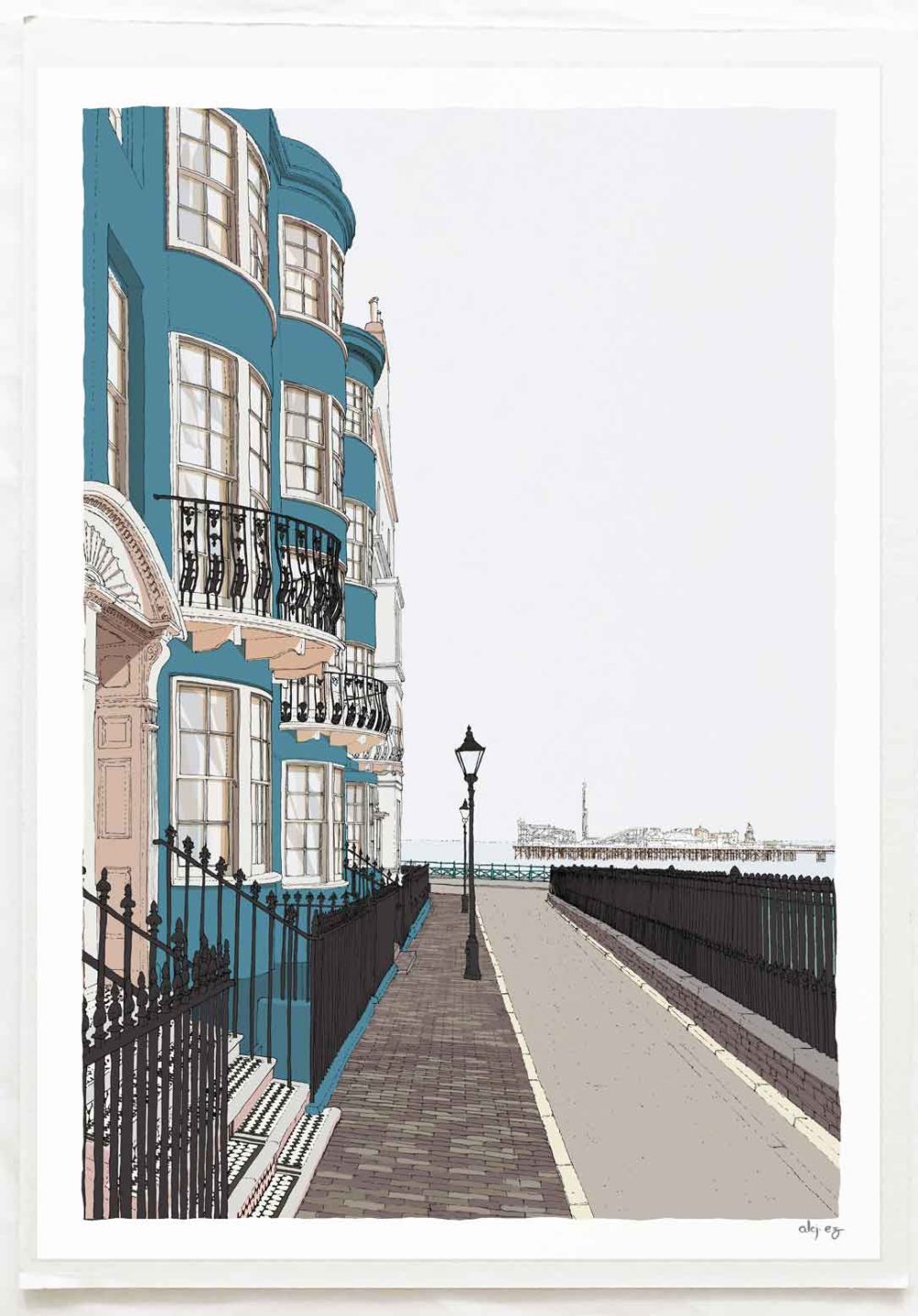
New Steine Gardens Brighton Seaside Architecture Amber
Price range: £40.00 through £310.00 Select options This product has multiple variants. The options may be chosen on the product page -
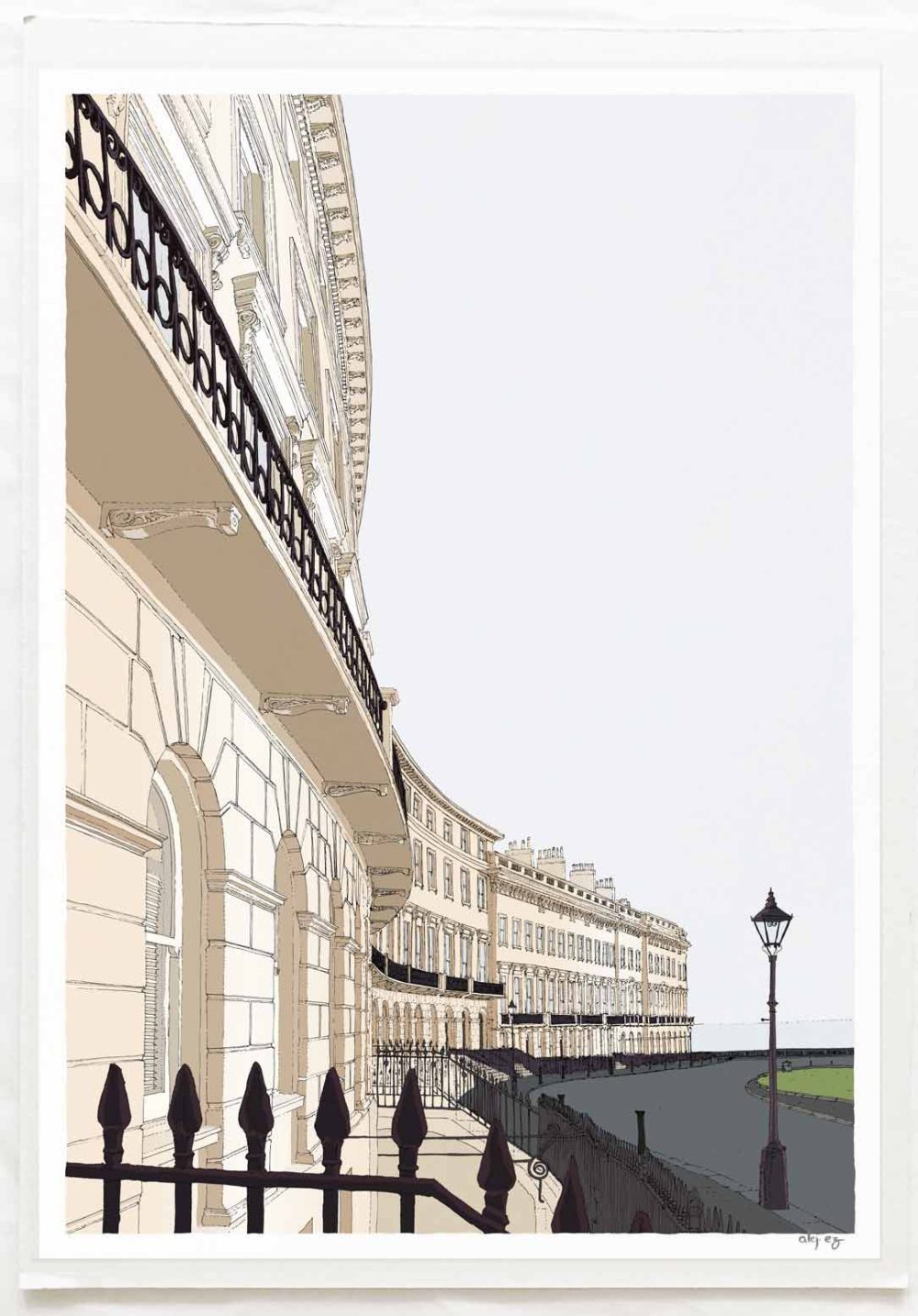
Adelaide Crescent Brighton and Hove Amber
Price range: £40.00 through £310.00 Select options This product has multiple variants. The options may be chosen on the product page -

Brunswick Place Brighton Architecture by the Sea Amber
Price range: £40.00 through £310.00 Select options This product has multiple variants. The options may be chosen on the product page -
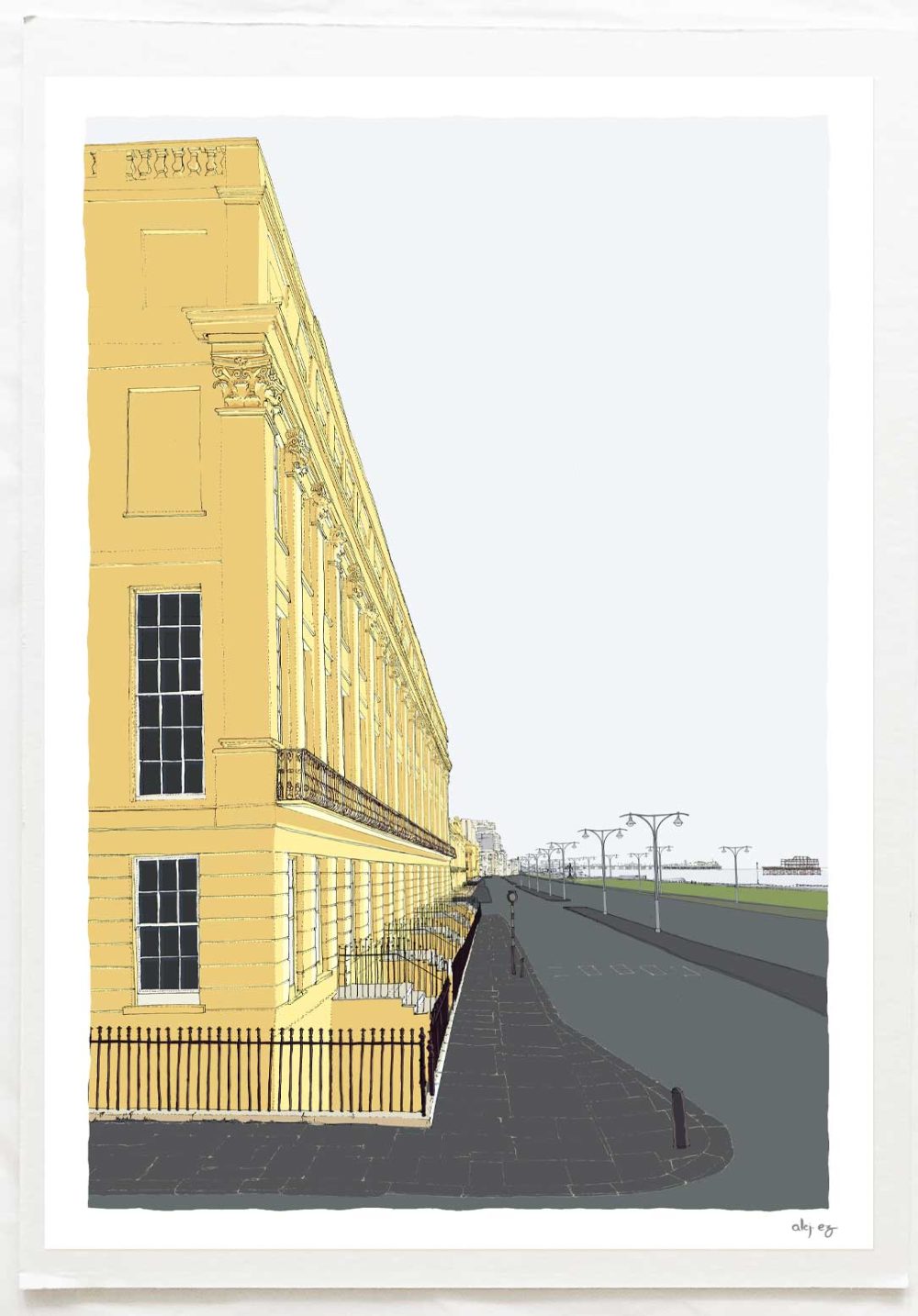
Brunswick Terrace Brighton Seafront
Price range: £40.00 through £310.00 Select options This product has multiple variants. The options may be chosen on the product page -
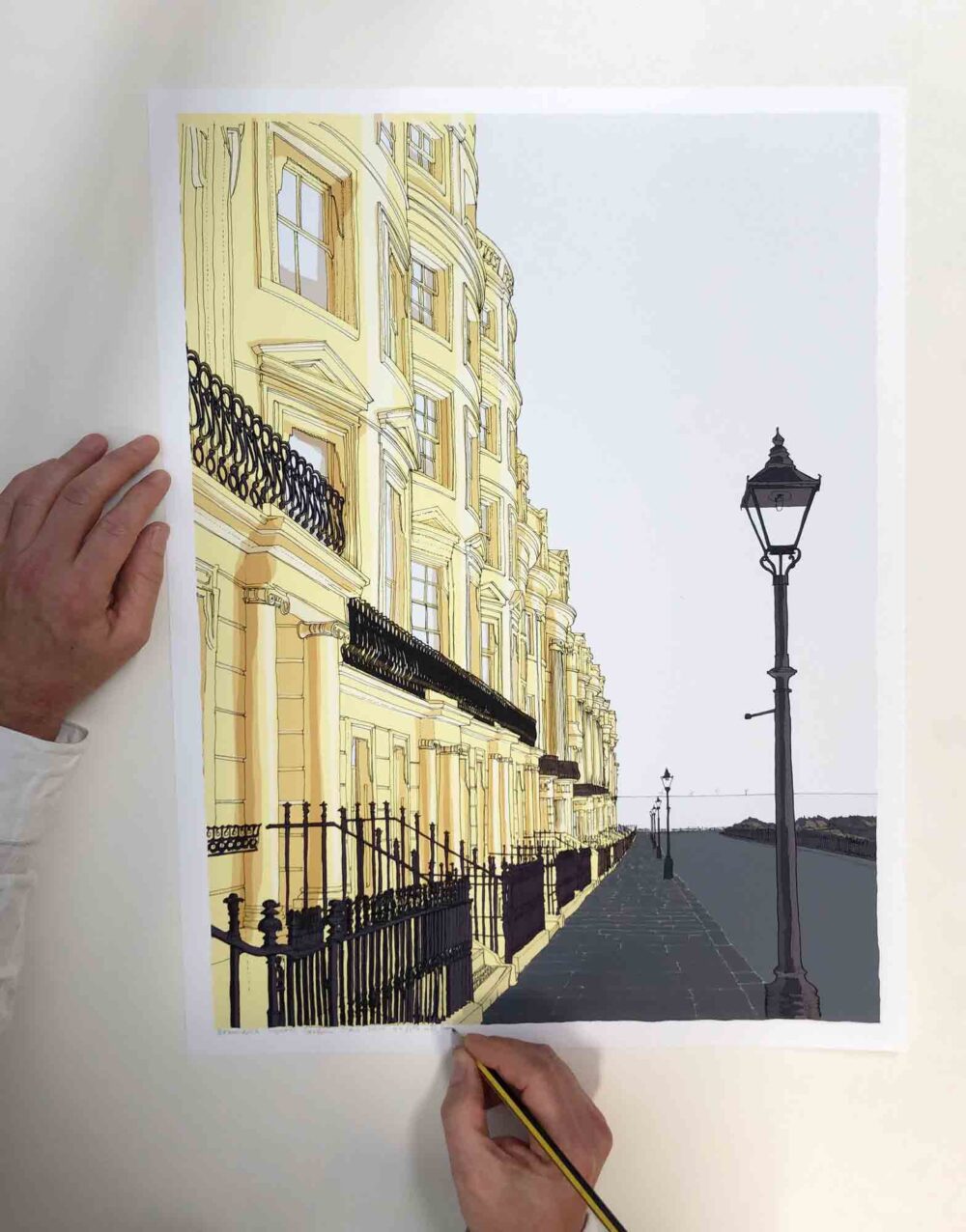
Brunswick Square a walk to the Regency Town House
Price range: £40.00 through £310.00 Select options This product has multiple variants. The options may be chosen on the product page -
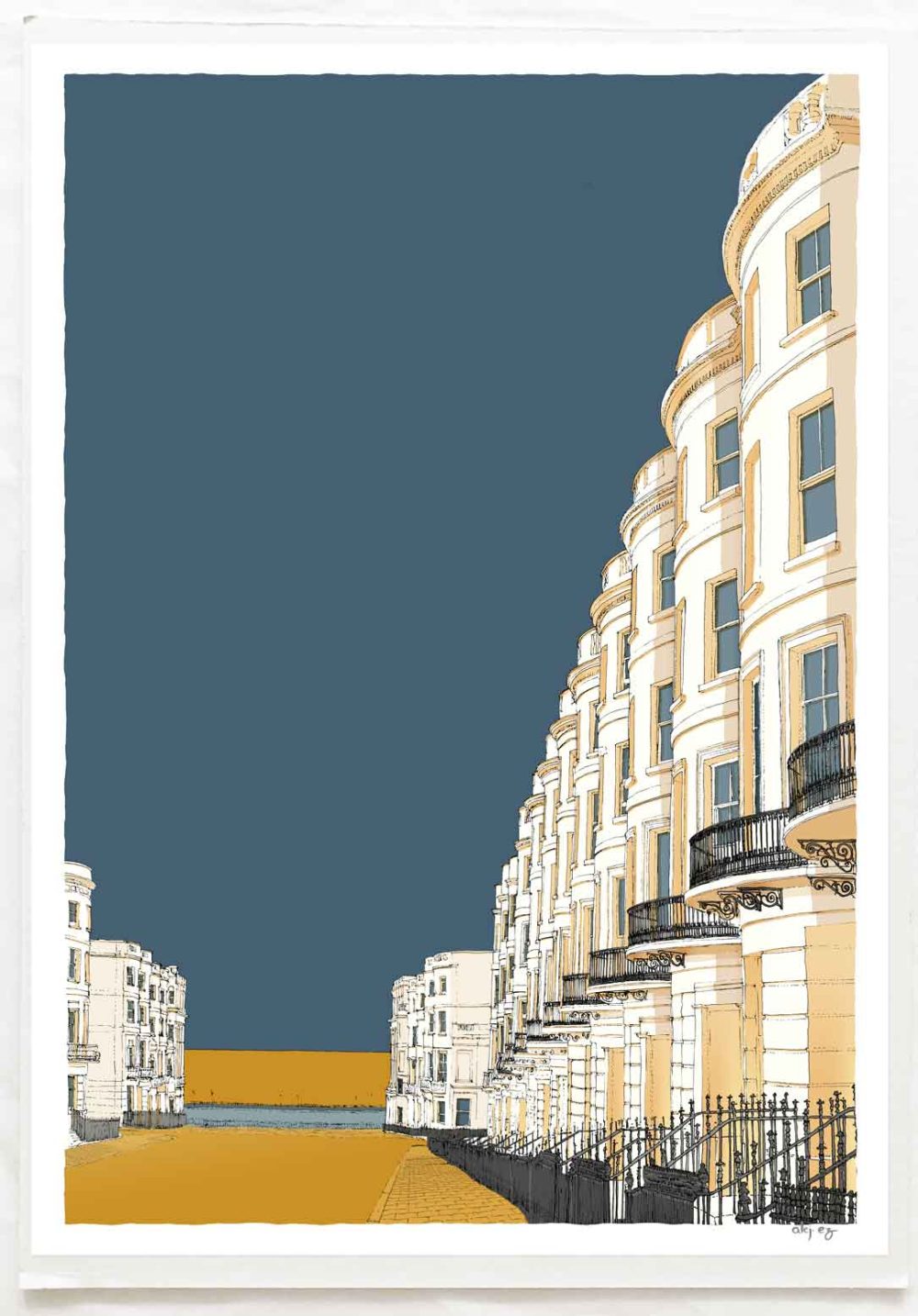
Brunswick Place Antique Ochre and Blue
Price range: £40.00 through £310.00 Select options This product has multiple variants. The options may be chosen on the product page -
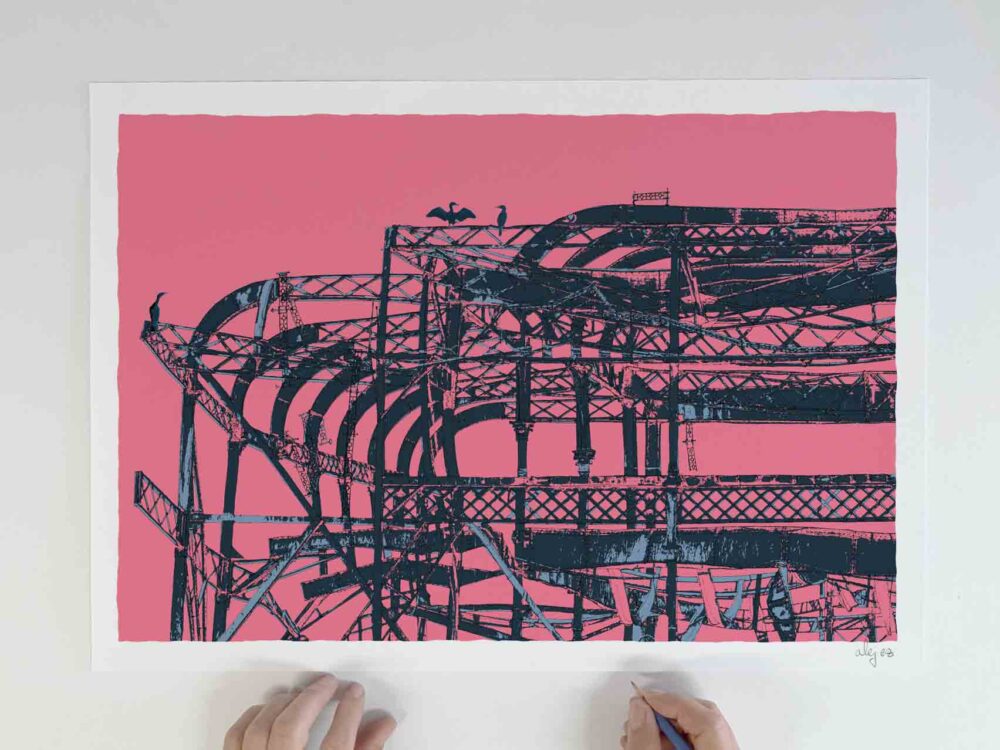
West Pier Cormorants Song Blue
Price range: £40.00 through £310.00 Select options This product has multiple variants. The options may be chosen on the product page -
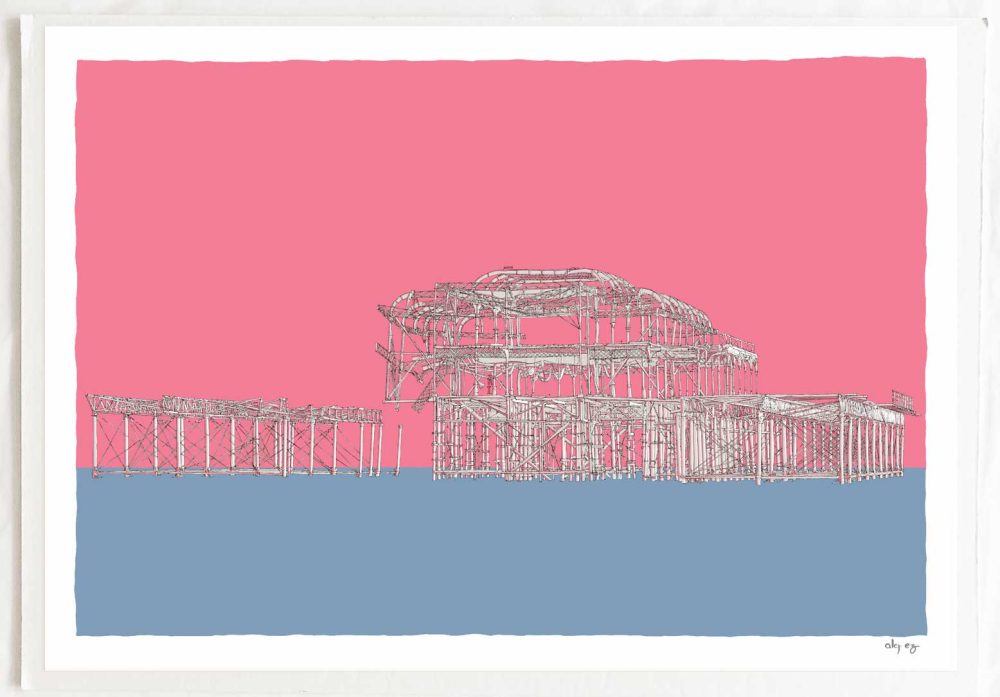
Brighton’s West Pier and Rampion Wind Farm Song
Price range: £40.00 through £310.00 Select options This product has multiple variants. The options may be chosen on the product page -
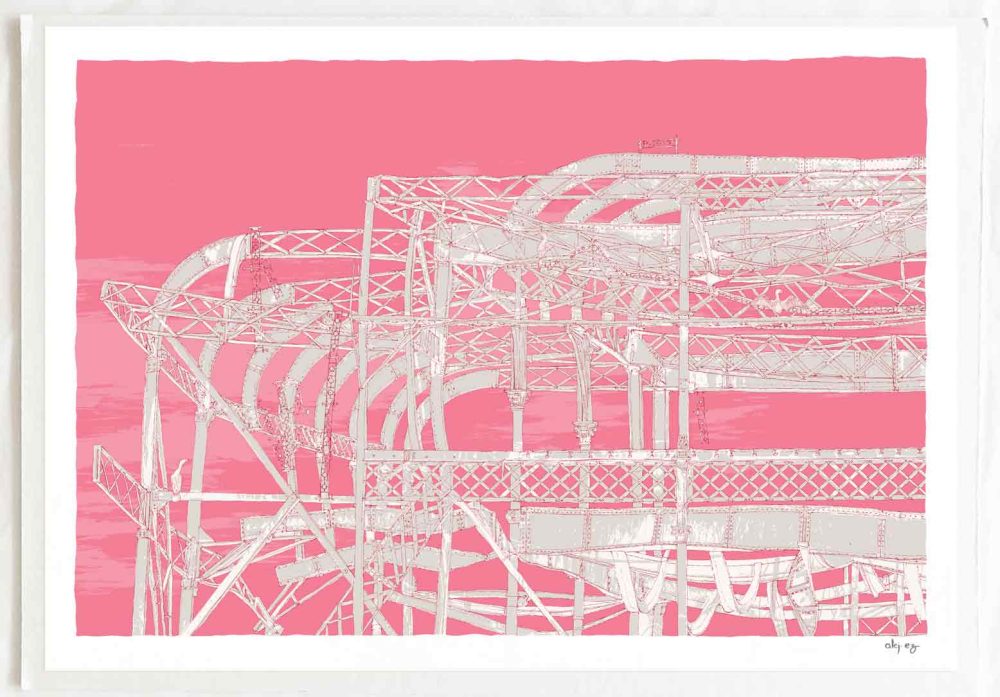
West Pier Cormorants Song
Price range: £40.00 through £310.00 Select options This product has multiple variants. The options may be chosen on the product page -

West Pier Rampion Wind Farm Song
£192.00 add to basket -
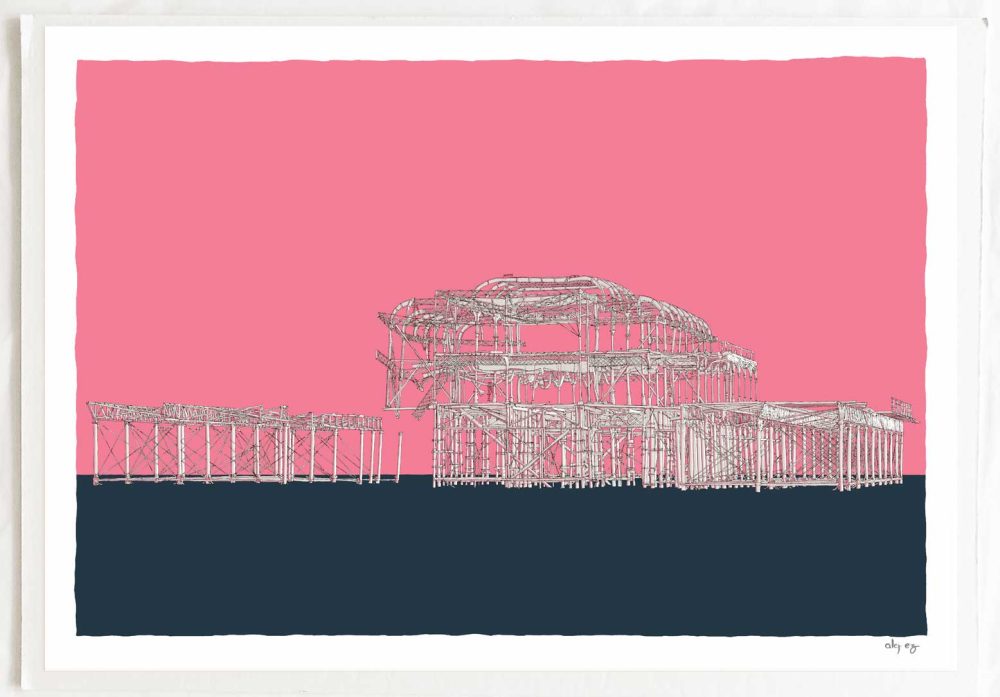
West Pier Song Blue
Price range: £40.00 through £310.00 Select options This product has multiple variants. The options may be chosen on the product page -

Hers and His Fitzherbert and George IV Brighton Pavilion Song
£192.00 add to basket -
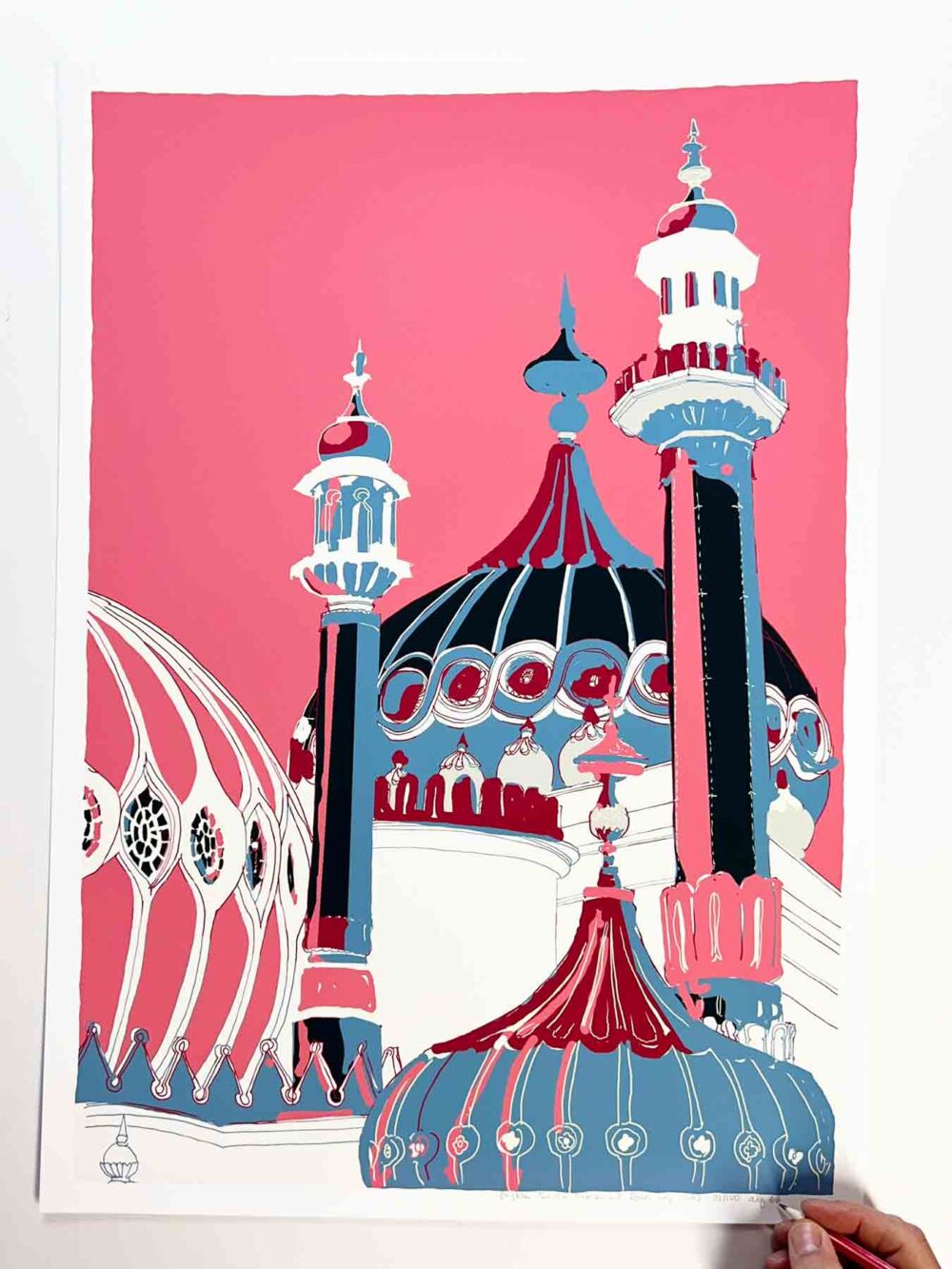
Brighton Pavilion Finials and Domes Song
£40.00 add to basket -
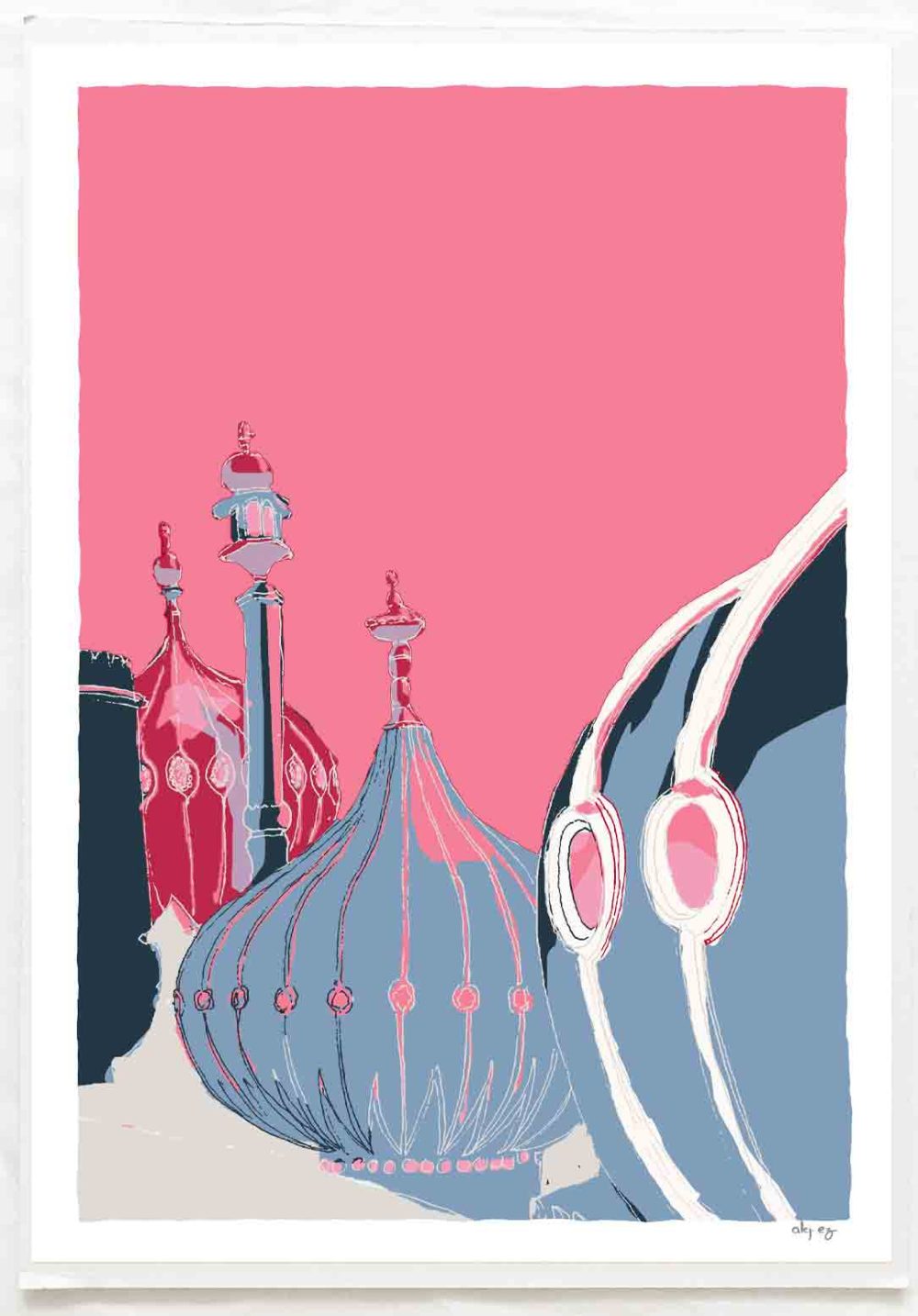
Brighton Pavilion Domes and Turrets Song
£40.00 add to basket -
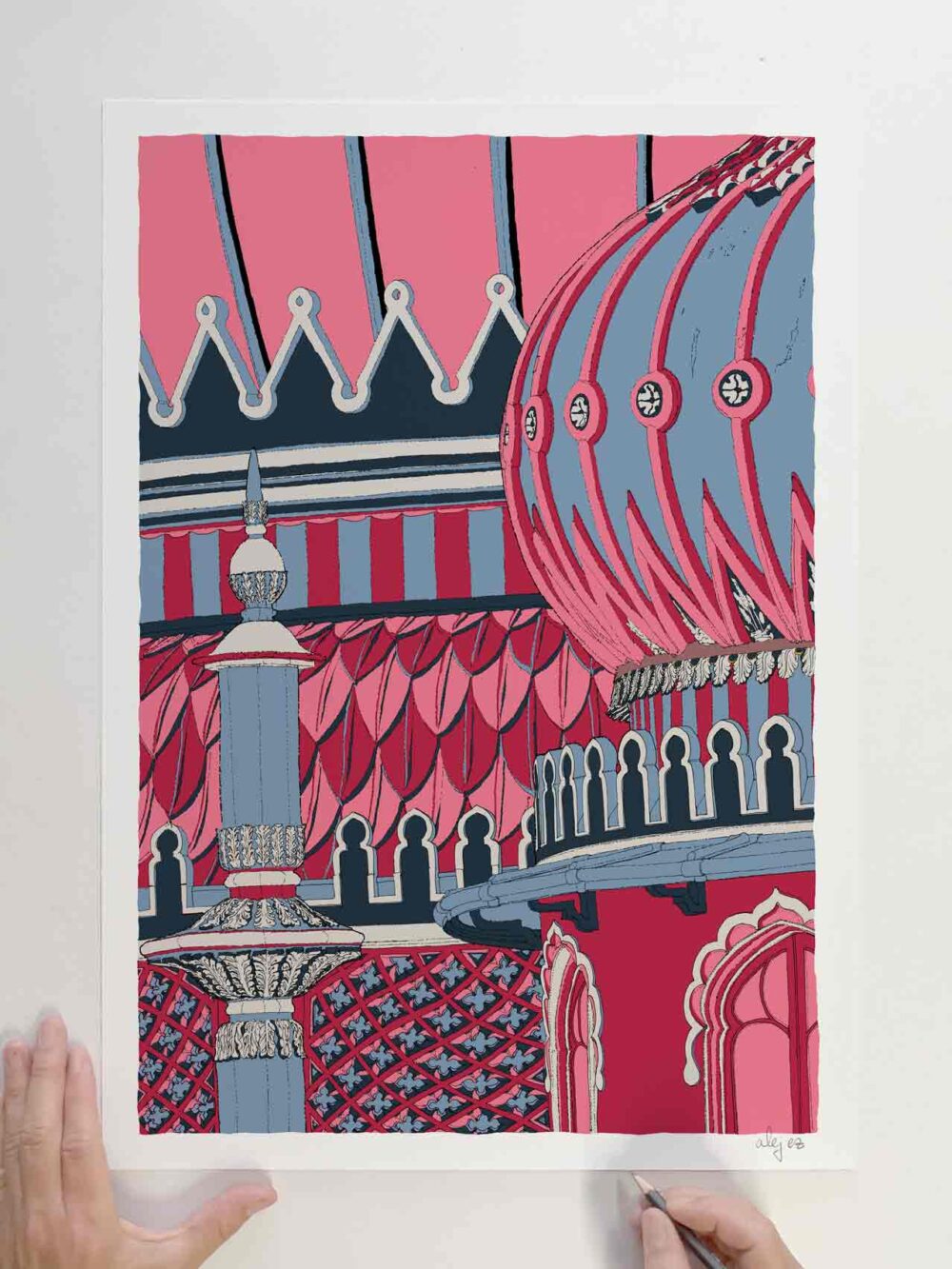
Regency Song Brighton Royal Pavilion Finial and Domes
Price range: £40.00 through £180.00 Select options This product has multiple variants. The options may be chosen on the product page -
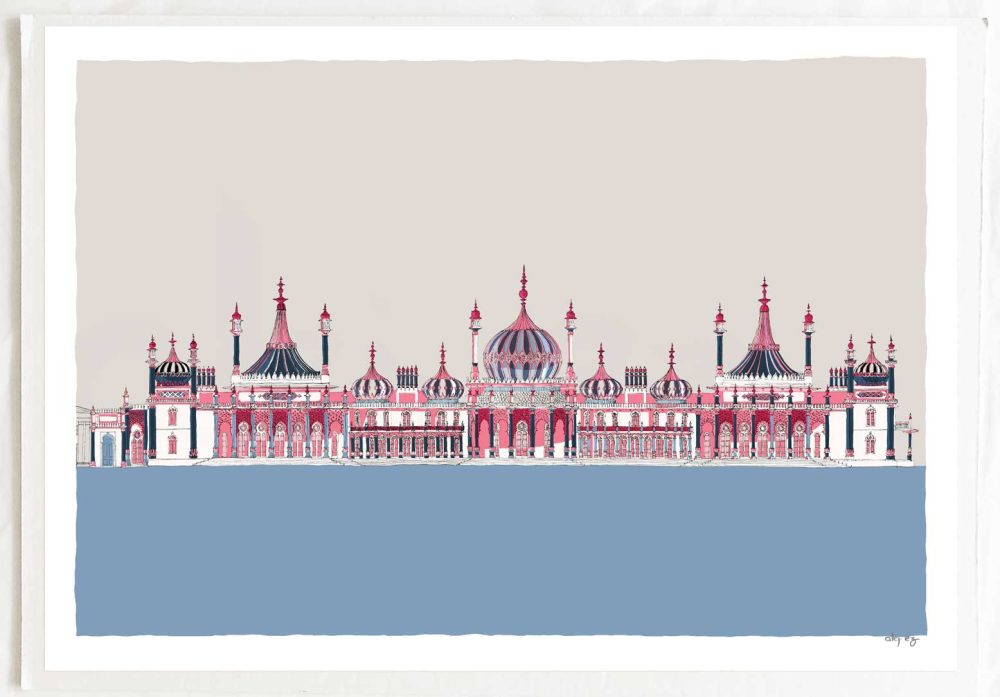
Brighton Royal Pavilion Matinee Song
Price range: £40.00 through £310.00 Select options This product has multiple variants. The options may be chosen on the product page -
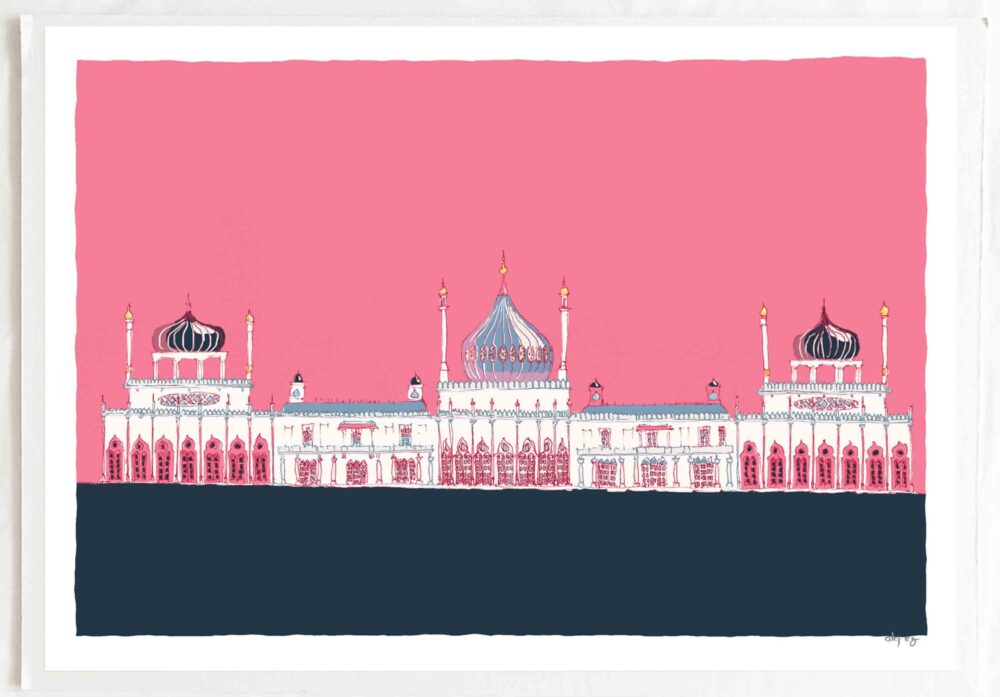
Brighton Pavilion Magic Lantern Slide Song
£40.00 add to basket -
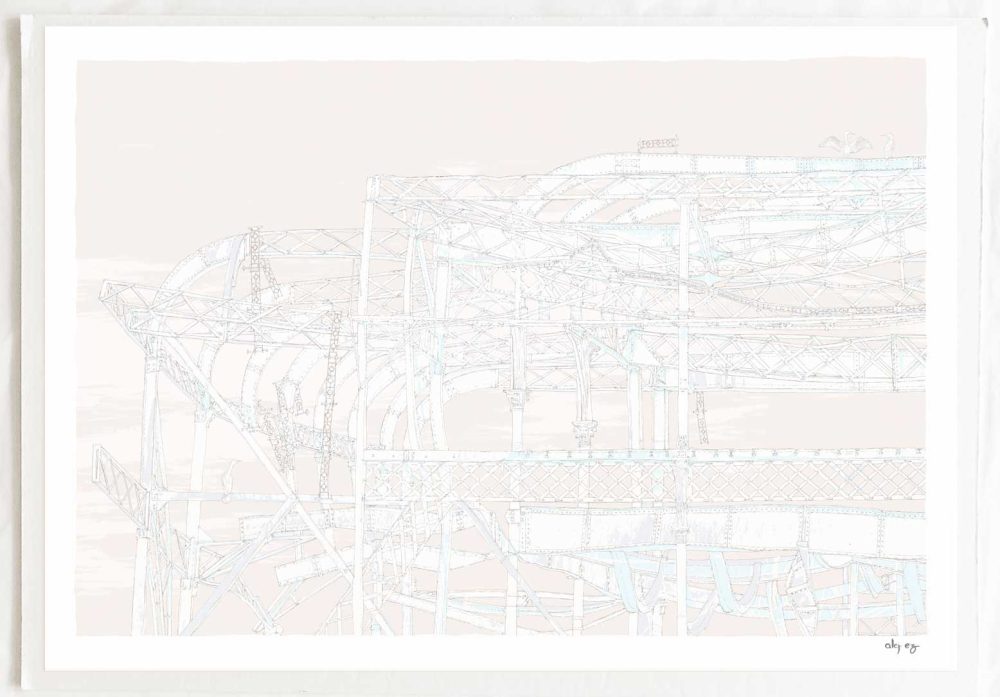
West Pier Cormorants Gesso
Price range: £40.00 through £310.00 Select options This product has multiple variants. The options may be chosen on the product page -
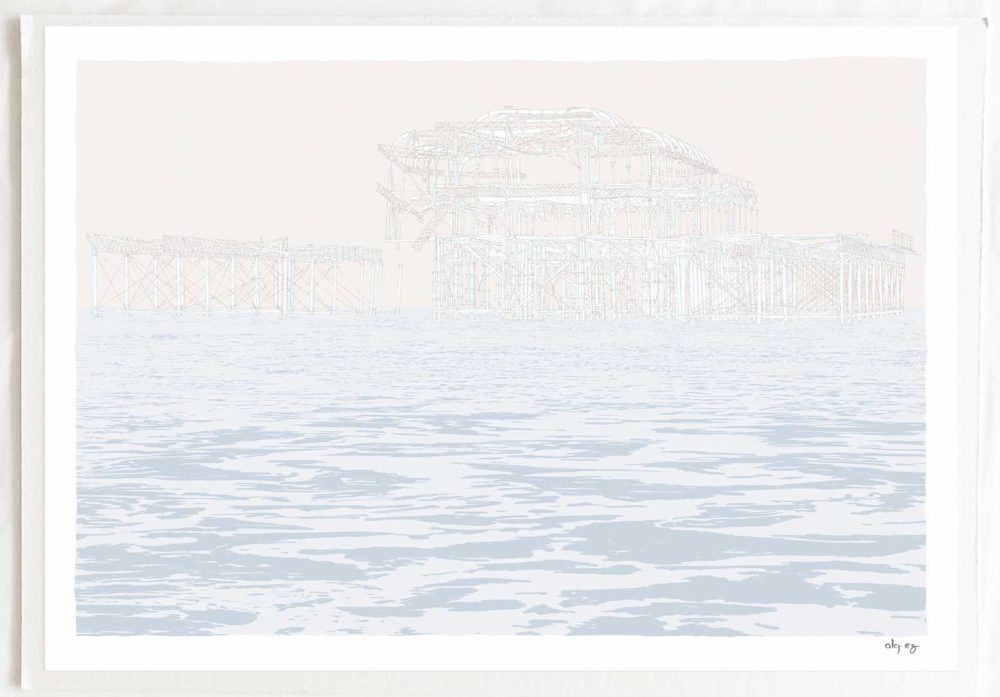
West Pier Gesso
Price range: £40.00 through £310.00 Select options This product has multiple variants. The options may be chosen on the product page -
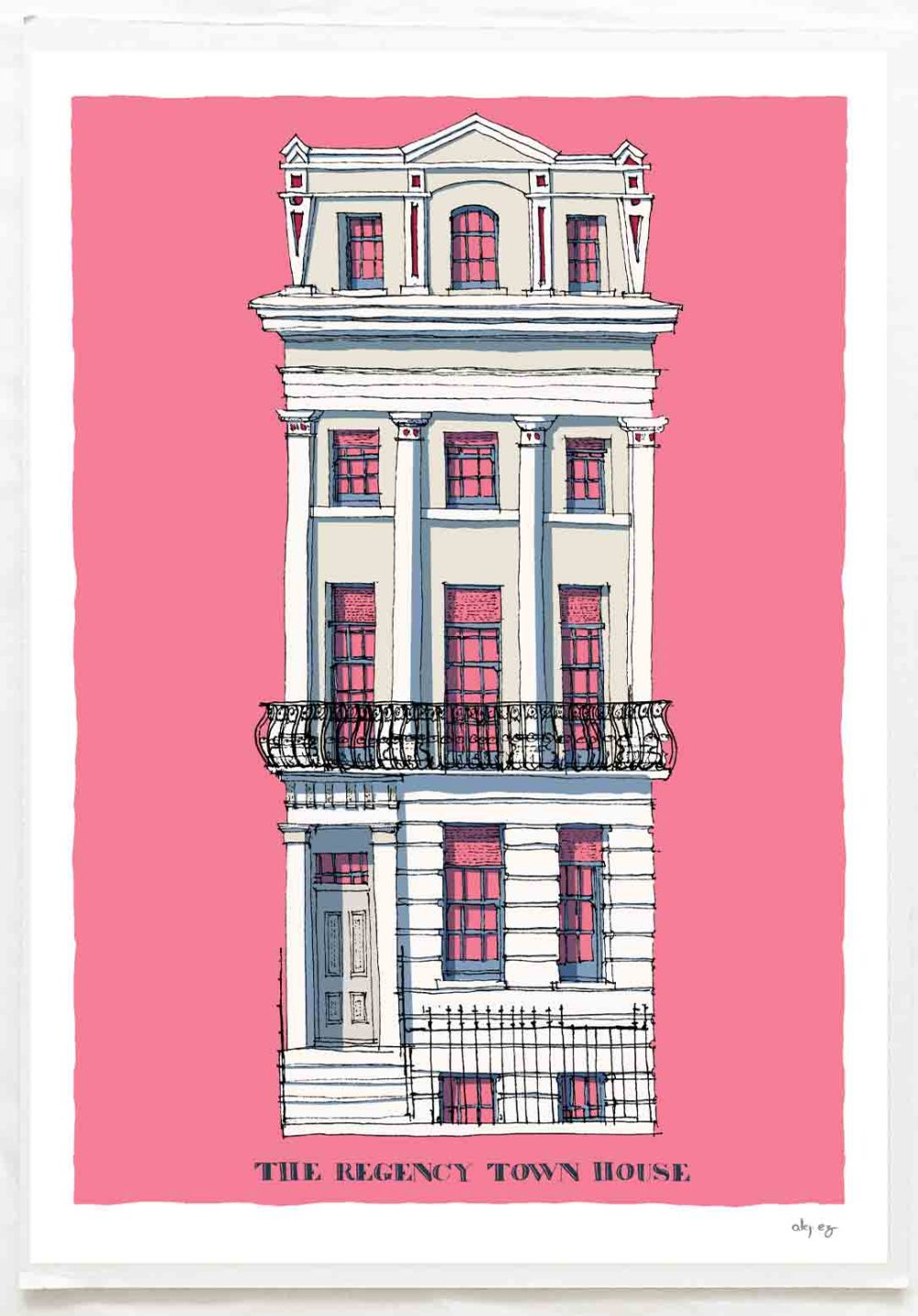
The Regency Town House Brunswick Square Song
Price range: £40.00 through £52.00 Select options This product has multiple variants. The options may be chosen on the product page -
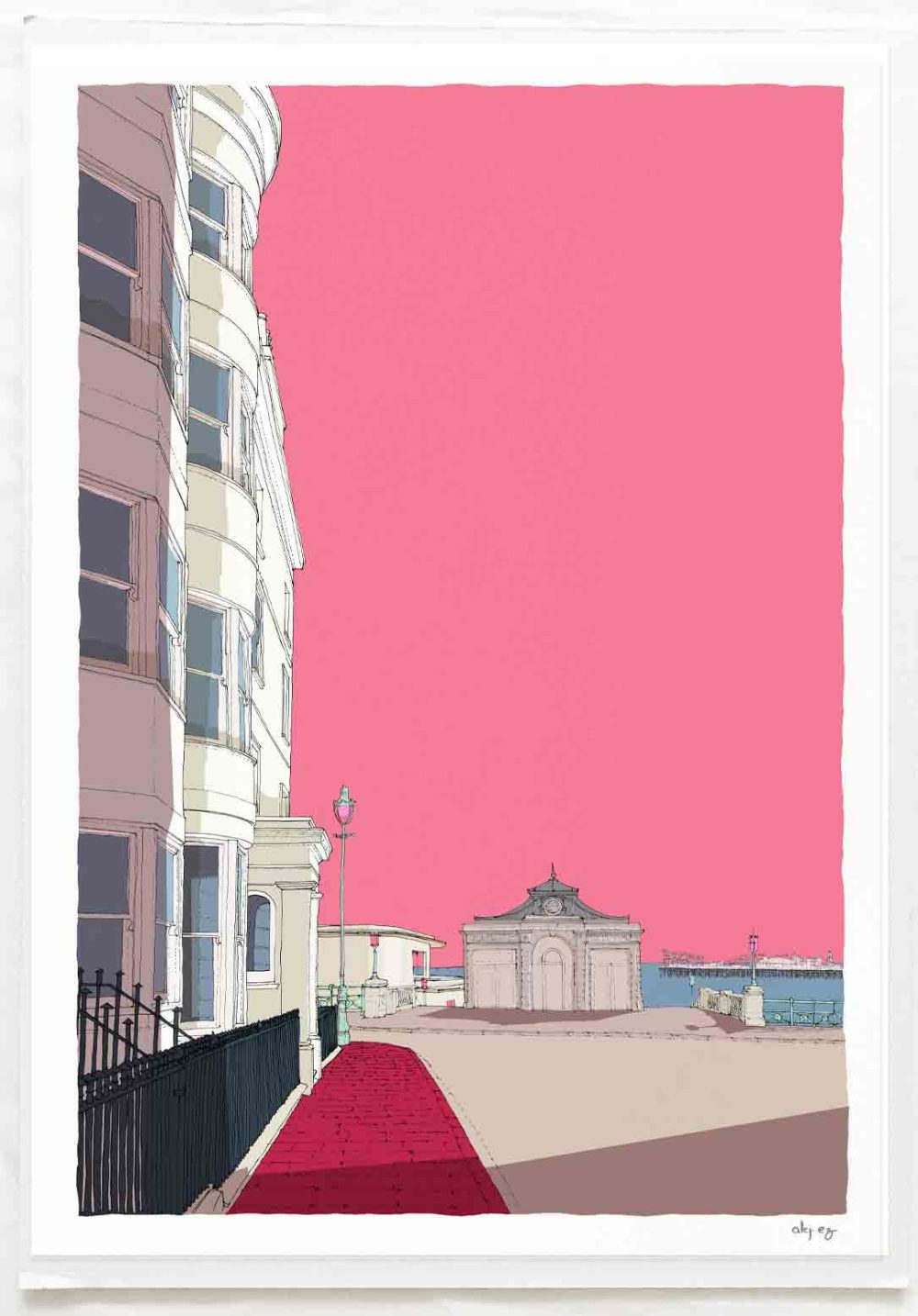
Madeira Place Brighton Song
Price range: £40.00 through £310.00 Select options This product has multiple variants. The options may be chosen on the product page
Additional information
| Dimensions | N/A |
|---|---|
| Print sizes: standard portrait and square | A0 print size, portrait, A1 print size, portrait, A2 print size, portrait, A3 print size, portrait, A4 print size, portrait |
